

E-Books → Transition and Coherence in Intellectual Property Law Essays in Honour of Annette Kur
Published by: voska89 on 11-08-2021, 12:55 |  0
0

Niklas Bruun, "Transition and Coherence in Intellectual Property Law: Essays in Honour of Annette Kur "
English | ISBN: 1108484603 | 2021 | 450 pages | PDF | 3 MB
The nature and content of intellectual property (IP) law, which is heavily contingent on the state of technology and on social and market developments, has always been subject to ongoing transitions. How those transitions are effected and the shape they take is crucial to the ability of IP to achieve its stated goals and provide the necessary climate for investment in creativity, innovation and brand differentiation. Yet the need for change can run headlong into a desire for coherence. A search for coherence tests the limits of the concept of "intellectual property," is imperiled by overlaps between different IP regimes, and calls for a unifying normative theme. This volume assembles contributors from across IP and the globe to explore these questions, including whether coherence is desirable. It should be read by anyone interested in understanding the conceptual underpinnings of one of the most important and dynamic areas of the law.
E-Books → A Critique of the Ontology of Intellectual Property Law
Published by: voska89 on 11-08-2021, 12:49 |  0
0
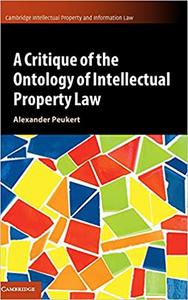
Alexander Peukert, "A Critique of the Ontology of Intellectual Property Law "
English | ISBN: 1108498329 | 2021 | 250 pages | PDF | 1069 KB
Intellectual property (IP) law operates with the ontological assumption that immaterial goods such as works, inventions, and designs exist, and that these abstract types can be owned like a piece of land. Alexander Peukert provides a comprehensive critique of this paradigm, showing that the abstract IP object is a speech-based construct, which first crystalised in the eighteenth century. He highlights the theoretical flaws of metaphysical object ontology and introduces John Searle's social ontology as a more plausible approach to the subject matter of IP. On this basis, he proposes an IP theory under which IP rights provide their holders with an exclusive privilege to use reproducible 'Master Artefacts.' Such a legal-realist IP theory, Peukert argues, is both descriptively and prescriptively superior to the prevailing paradigm of the abstract IP object. This work was originally published in German and was translated by Gill Mertens.
E-Books → Communities of Learning Networks and the Shaping of Intellectual Identity in Europe, 1100-1500
Published by: voska89 on 11-08-2021, 00:49 |  0
0
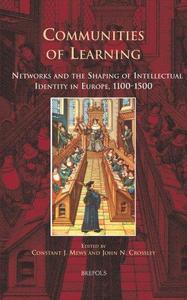
Communities of Learning: Networks and the Shaping of Intellectual Identity in Europe, 1100-1500 By Constant J. Mews, John N. Crossley
2011 | 376 Pages | ISBN: 2503532330 | PDF | 4 MB
Communities of Learning: Networks and the Shaping of Intellectual Identity in Europe, 1100-1500 explores the fundamental insight that all new ideas are developed in the context of a community, whether academic, religious, or simply as a network of friends. The essays in this volume consider this notion in a variety of contexts and locations within Europe, from the pioneering age of translation activity in twelfth-century Toledo, when Jewish, Christian, and Muslim scholars came together to discuss Aristotle, to the origins of the University of Paris in the thirteenth century, and up to the period of great cultural renewal in France, Germany, and Italy in the fourteenth and fifteenth centuries. The collected essays bring together disciplinary approaches that are often discussed quite separately, namely that of the history of ideas, and the sociologies of both intellectual and religious life, with a view to exploring the multiplicity of communities in which ideas are pursued. Underpinning these various essays is an awareness of the delicate relationship between education and the diversity of religious practice and expression within Europe from 1100 to 1500. The collection emphasizes the fundamental continuity of intellectual concerns, which were shaped by both classical thought and monotheist religious tradition, but interpreted in a variety of ways.
E-Books → Owning Ideas The Intellectual Origins of American Intellectual Property, 1790-1909
Published by: voska89 on 9-08-2021, 00:59 |  0
0
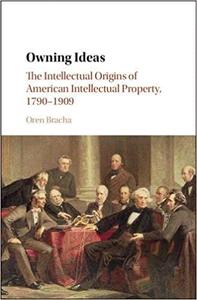
Oren Bracha, "Owning Ideas: The Intellectual Origins of American Intellectual Property, 1790-1909 "
English | ISBN: 0521877660 | 2016 | 331 pages | PDF | 2 MB
Owning Ideas is a comprehensive account of the emergence of the concept of intellectual property in the United States during the long nineteenth century. In the modern information era, intellectual property has become a central economic and cultural phenomenon, and an important lever for allocating wealth and power. This book uncovers the intellectual origins of this modern concept of private property in ideas through a close study of its emergence within the two most important areas of this field: patent and copyright. By placing the development of legal concepts within their social context, this study reconstructs the radical transformation of the idea. Our modern notion of owning ideas, it argues, came into being when the ideals of eighteenth-century possessive individualism at the heart of early patent and copyright were subjected to the forces and ideology of late-nineteenth-century corporate liberalism.
E-Books → An Islamic Vision of Intellectual Property Theory and Practice
Published by: voska89 on 9-08-2021, 00:38 |  0
0
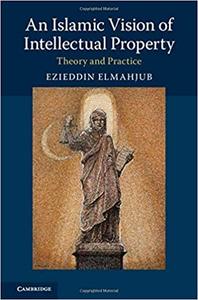
Ezieddin Elmahjub, "An Islamic Vision of Intellectual Property: Theory and Practice"
English | ISBN: 1107182832 | 2019 | 214 pages | PDF | 1306 KB
For over a century, intellectual property (IP) regimes have been justified using Western philosophical theories rooted in the idea that IP must reward talent and maximize global stocks of knowledge and cultural products. Reframing IP in a context of legal pluralism, Ezieddin Elmahjub brings an Islamic and comparative narrative to the appropriate design and scope of IP rights, and in doing so criticizes the dominance of Western influence on a global regime that impacts the ability of people to access medicine, to read, to imagine, and to reshape popular culture. The Islamic vision of IP, which is based on a broad theory of social justice, maintains that IP cannot simply be seen as a reward for effort or tool to maximize economic efficiency but as one legal right within a complicated distributive scheme affecting fundamental human rights, equal opportunities, and human capabilities.
E-Books → A Constructive Theology of Intellectual Disability Human Being as Mutuality and Response
Published by: voska89 on 6-08-2021, 23:13 |  0
0
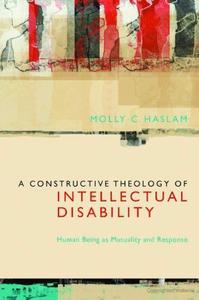
A Constructive Theology of Intellectual Disability: Human Being as Mutuality and Response By Molly C. Haslam
2012 | 145 Pages | ISBN: 0823239411 | PDF | 2 MB
[center]
E-Books → An Intellectual History for India
Published by: voska89 on 4-08-2021, 19:16 |  0
0

An Intellectual History for India By Shruti Kapila; C.A. Bayly
2010 | 164 Pages | ISBN: 0521199751 | PDF | 12 MB
This volume addresses the power of ideas in the making of Indian political modernity. As an intermediate history of connections between South Asia and the global arena the volume raises new issues in intellectual history. It reviews the period from the emergence of constitutional liberalism in the 1830s, through the swadeshi era to the writings of Tilak, Azad and Gandhi in the twentieth century. While several contributions reflect on the ideologies of nationalism, the volume seeks to rescue intellectual history from being simply a narration of the nation-state. It does not seek to create a 'canon' of political thought so much as to show how Indian concepts of state and society were redrawn in the context of emergent globalized debates about freedom, the constitution of the self and the good society in the late colonial era. In so doing the contributions here resituate an Indian intellectual history that has long been eclipsed by social and political history. These essays were originally published in a Special issue of the journal Modern Intellectual History (CUP, April 2007).
E-Books → Erasmus Intellectual of the 16th Century
Published by: voska89 on 3-08-2021, 05:28 |  0
0
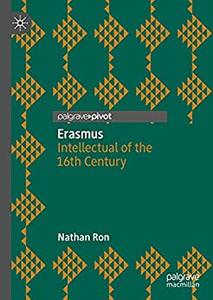
Erasmus: Intellectual of the 16th Century
English | 2021 | ISBN: 3030798593 | 123 Pages | PDF | 2 MB
This book is a sequel to Nathan Ron's Erasmus and the "Other." Should we consider Erasmus an involved or public intellectual alongside figures such as Machiavelli, Milton, Locke, Voltaire, and Montesquieu? Was Erasmus really an independent intellectual? In Ron's estimation, Erasmus did not fully live up to his professed principles of Christian peace. Despite the anti-war preaching so eminent in his writings, he made no stand against the warlike and expansionist foreign policies of specific European kings of his era, and even praised the glory won by Francis I on the battlefield of Marignano (1515). Furthermore, in the face of Henry VIII's execution of his beloved Thomas More and John Fisher, and the atrocities committed by the Spanish against indigenous peoples in the New World, Erasmus preferred self-censorship to expressions of protest or criticism and did not step forward to reproach kings of their misdeeds or crimes.
E-Books → Revolutionary Ideas An Intellectual History of the French Revolution from The Rights of Man to Robespierre
Published by: voska89 on 2-08-2021, 15:01 |  0
0

Revolutionary Ideas: An Intellectual History of the French Revolution from The Rights of Man to Robespierre by Jonathan I. Israel
English | March 23, 2014 | ISBN: 0691151725, 0691169713 | True PDF | 883 pages | 17.2 MB
How the Radical Enlightenment inspired and shaped the French Revolution
E-Books → The Intellectual Lives of Children
Published by: voska89 on 30-07-2021, 23:23 |  0
0

Susan Engel, "The Intellectual Lives of Children"
English | ISBN: 0674988035 | 2021 | 240 pages | PDF | 7 MB
A look inside the minds of young children shows how we can better nurture their abilities to think and grow.



